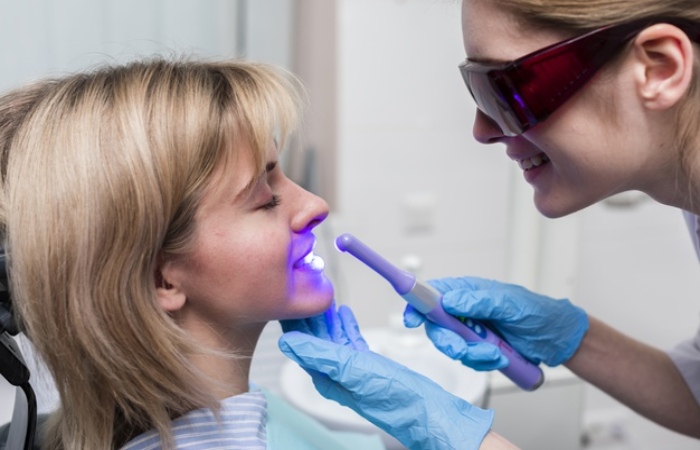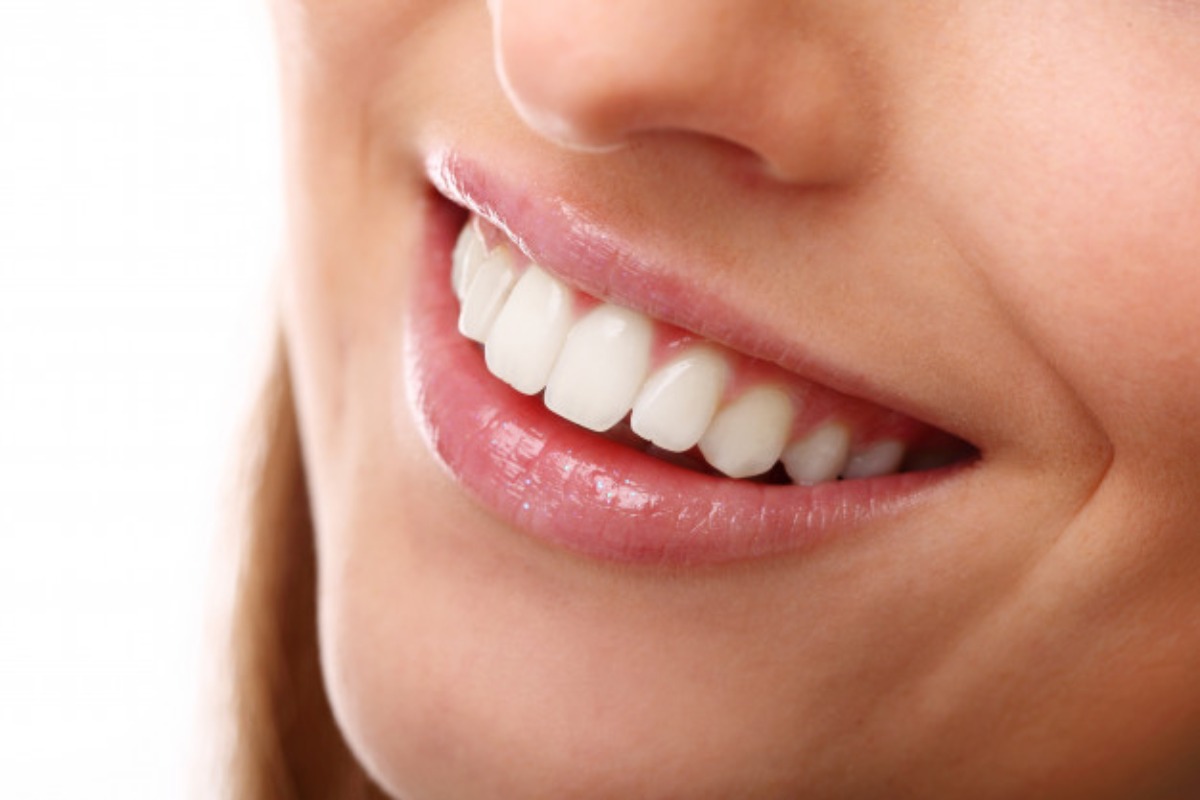Teeth Whitening: We live in a time when basic oral hygiene has already become a reality for the majority of the population. Some procedures that help us take care of our teeth, prevent them from breaking or falling out are available to everyone, not just those with greater economic power. Implants, dentistry methods are now in the order of things.
The teeth are one of the most attractive elements of the human body, considered aesthetic. Thus, to create an attractive smile, it is necessary to achieve a white tone and avoid spots. For this reason, teeth whitening has developed as one of the most demanded dental procedures.
Over time, the natural darkening of any person is a natural phenomenon. Other lifestyle habits such as regular smoking or drinking coffee, tea, or wine also contribute to this effect or the appearance of spots.
Table of Contents
What Is Teeth Whitening?

Teeth whitening is a clinical technique that lightens the colour of natural teeth or stains caused by external factors. This treatment is based on bleaching agents (carbamide peroxide and hydrogen peroxide), which act by forcing the agent to enter the dentin, causing the decomposition of the organic compounds it contains.
Currently, there are two types of teeth whitening:
Outpatient Teeth Whitening
This procedure is performed at home, always under the supervision of a specialist doctor, who will determine the time of treatment required. After brushing the teeth, the patient applies a splint with a whitening paste. In addition, follow-up sessions can be scheduled after treatment.
In-Office Or Photoactivation Teeth Whitening
In-office teeth whitening involves applying an intense LED light to a gel applied to the patient’s teeth.
The change among the two lies in the intensity of the treatment and, therefore, in the effect of sensitivity on gums and teeth that it can cause.
The teeth whitening results usually last for years if you follow the instructions of a specialist, such as using a whitening toothpaste. It will also depend on your genes and lifestyle.
There are many [teeth whitening] kits on the market. However, for comprehensive safety, We recommend that you visit a specialist before using them.
Is Teeth Whitening For Me?
This type of treatment is successful in 90% of the people who receive it. Note that:
- [Teeth whitening] not allow for children under the age of 15 whose tooth enamel is not yet fully formed and for pregnant women.
- [Teeth whitening] does not work well on teeth discoloured with medications (tetracyclines), but it does work on yellow teeth.
- It only works with the natural teeth of the patients. If you put on some cover, the treatment will not affect this material, but there are alternatives such as porcelain covers.
- This procedure does not recommend for people with gum problems such as gingivitis.
- Good oral health habits help prevent blemishes, and the effect of the treatment is long-lasting.
Myths About Teeth Whitening
In many situations, wrong or unnecessary information prompts us to decide what treatment to follow could be harmful.
Over-the-counter whitening agents are almost always harmful to our enamel, as they burn it off and only remove stains on the surface.
Homemade lemon baking soda recipes don’t work and have the same effect as whitening pastes.
[Teeth whitening] is not a substitute for brushing the mouth. As it uses to remove plaque and not discolour the teeth.
Also, You can find more helpful resources at Inbusinessworld.






